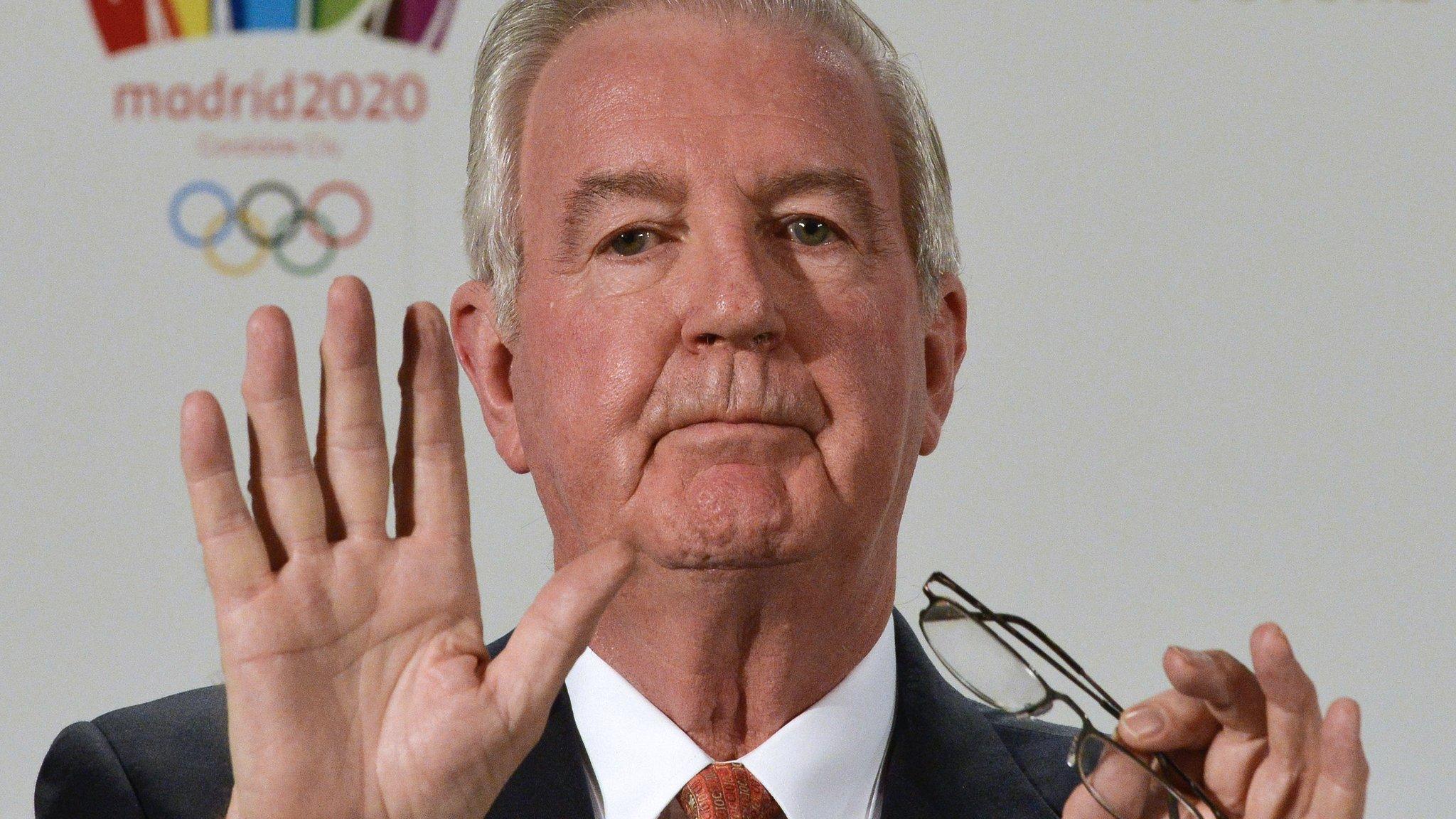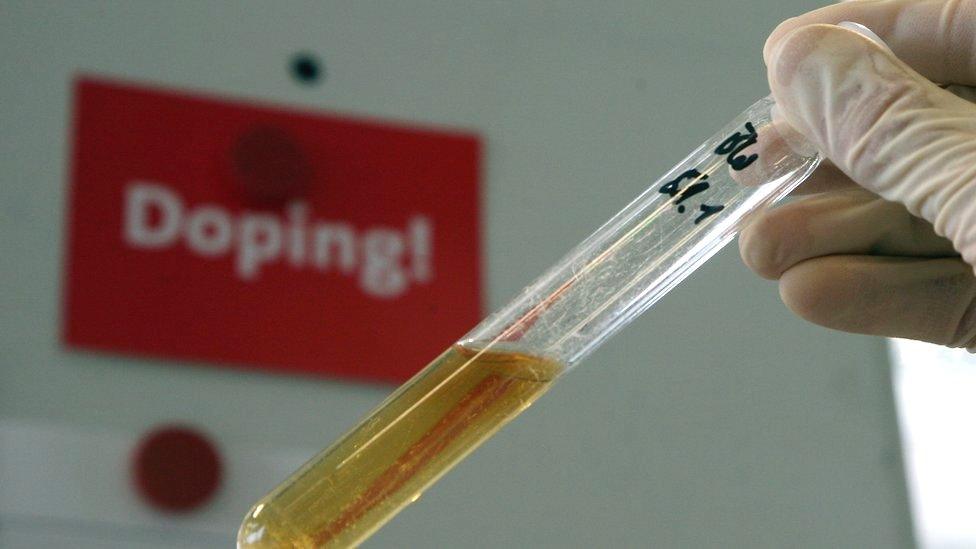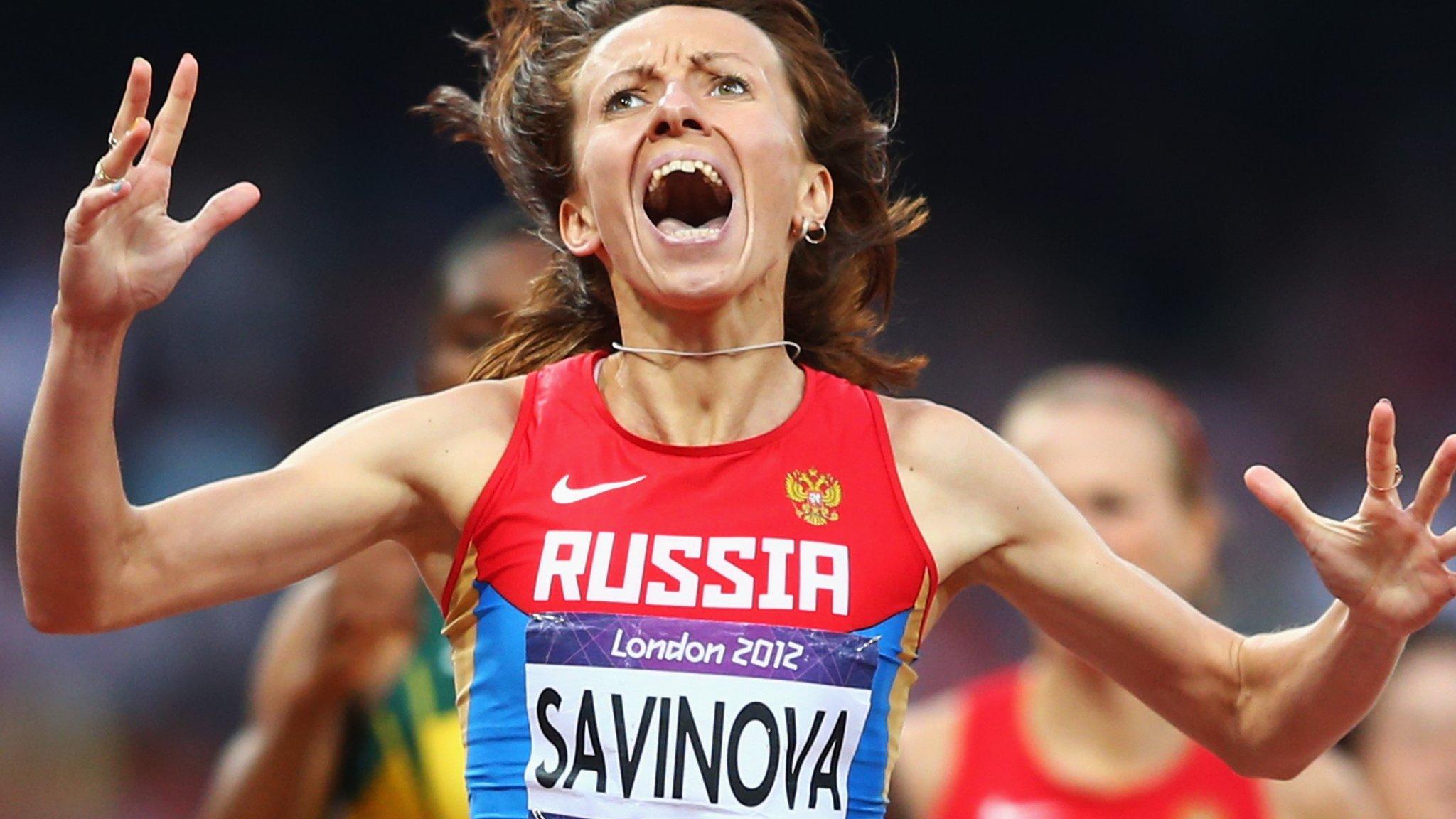Sir Craig Reedie: World Anti-Doping Agency president fights on despite criticism
- Published
Sir Craig Reedie says Wada will continue its fight against doping
World Anti-Doping Agency president Sir Craig Reedie has insisted sport can recover from a "dreadful" period.
Wada was heavily criticised by Olympic officials for its handling of the Russian doping scandal in the build-up to this summer's Rio Games.
Reedie's future at the agency has been called into question just days before he stands for re-election.
But the 75-year-old Briton told BBC Sport he would fight on as "the integrity of sport is at stake".
Tensions over Wada's attempt to get Russia banned from the Rio Olympics were laid bare at this week's general assembly of the Association of National Olympic Committees (ANOC).
"There was irritation from a number of national Olympic committees," said Reedie, who is also a member of the International Olympic Committee (IOC).
"Just before Rio they would rather sport had not been involved in accusations of the breaching of rules by the Russian authorities, and I understand that, so I had to deal with it and I did deal with it."
IOC president Thomas Bach told BBC Sport this week he has "no regrets" about letting Russia compete at Rio 2016.
IOC chief Bach has 'no regrets' over Russia ruling
But ANOC president Sheikh Ahmad Al-Fahad Al-Sabah - an influential powerbroker in the Olympic movement - has called for a "neutral" leader to take charge of Wada.
Reedie is due to stand unopposed for a second three-year term at a Wada board meeting this weekend. He had been told he had the IOC's support.
"I've spent 15 years of my life working with Wada," he said. "I don't think it's a particularly good idea if I walk away from it simply because it's getting difficult.
"We've been faced with a difficult situation. I think we're going to come through it, and we have to. The integrity of sport is at stake."
The Olympic movement is bracing itself for the release next month of a second independent Wada report by professor Richard McLaren into Russian doping.
His first report was damning, revealing a systematic cheating programme in the country across many sports.
"If, about three and a half years ago, when I was invited to apply [to be Wada president], somebody had told me this would have happened, it maybe isn't the kind of job that you would volunteer for," said Reedie.
"That having been said, there are serious issues involved here.
"The past has been pretty dreadful. I'm really hopeful that once we get the second part of the McLaren report out of the way, we can draw a line under the past and move forward.
"We have to get the Russian anti-doping agency properly compliant again and we need to look at what Wada is currently doing, and see if we can do it better."
Wada's board meeting in Glasgow this weekend could be pivotal in the debate about how to better protect clean sport following the recent Russian scandal.
Many within the anti-doping community want Wada to be strengthened, with greater independence and sanctioning power.
However, the sports movement appears reluctant to hand Wada more authority, with Bach suggesting he wants a new Wada-run body to take on responsibility for testing as well as regulation.
Subscribe to the BBC Sport newsletter, external to get our pick of news, features and video sent to your inbox.
- Attribution
- Published21 June 2016

- Published10 May 2016

- Published19 November 2015
